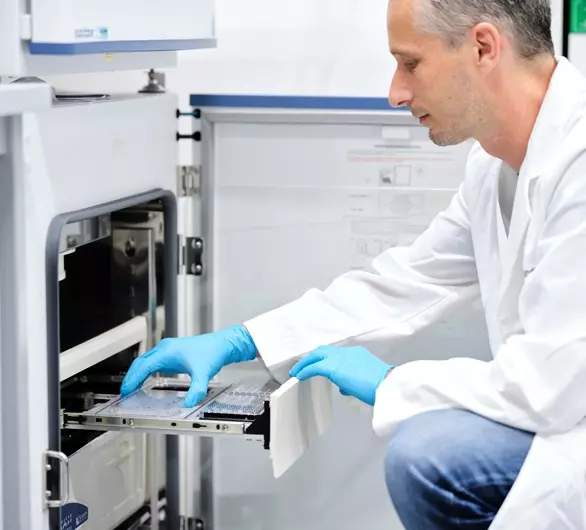Alzheimer’s disease is the most prevalent neurodegenerative disease leading to dementia and a major focus of AC Immune. In recent years, as our pipeline has grown, we have diversified to develop product candidates targeting Parkinson’s disease and other NeuroOrphan diseases.
CLINICAL STAGE PROGRAMS
TARGET
PRODUCT
CANDIDATE
CANDIDATE
INDICATION
Discovery
Preclinical
Phase 1
Phase 2
Phase 3
Partner
Abeta
ACI‑24.060
anti-Abeta active immunotherapy
Alzheimer's disease
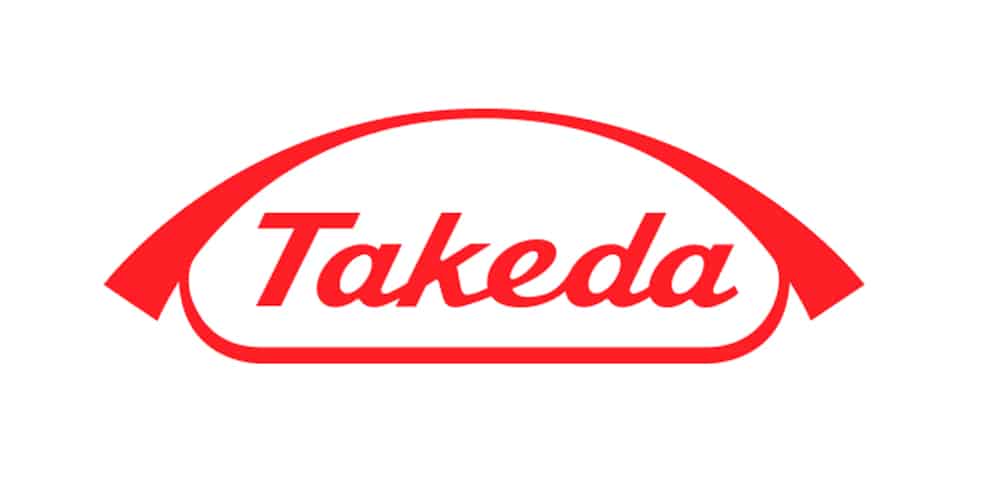

ACI-24 anti-Abeta active immunotherapy candidates are designed to generate antibodies specifically targeting misfolded Abeta to prevent accumulation and enhance clearance of amyloid plaques. Based on preclinical results, immunization with ACI-24.060 is expected to produce a broad immune response binding key pathological species such as Abeta oligomers and the highly neurotoxic pyroglutamate Abeta (N3pE-Abeta).
- Modality: Active immunotherapy
- Therapeutic Area: CNS
-
Phase:
1b/2
- Partner: Takeda
Alzheimer's disease
(Down syndrome1)


ACI-24 anti-Abeta active immunotherapy candidates are designed to generate antibodies specifically targeting misfolded Abeta to prevent accumulation and enhance clearance of amyloid plaques. Based on preclinical results, immunization with ACI-24.060 is expected to produce a broad immune response binding key pathological species such as Abeta oligomers and the highly neurotoxic pyroglutamate Abeta (N3pE-Abeta).
- Modality: Active immunotherapy
- Therapeutic Area: CNS
-
Phase:
1b/2
- Partner: Takeda
Tau
ACI‑35.030
anti-pTau active immunotherapy
Alzheimer's disease
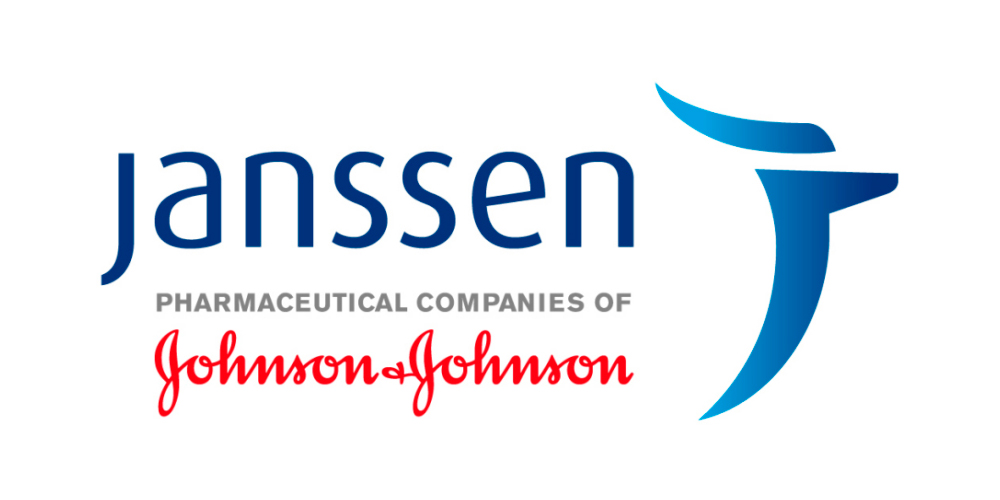

The first-in-class anti-pTau active immunotherapy candidate ACI-35.030 was designed to elicit antibodies against extracellular phosphorylated Tau (pTau) to prevent and reduce the spread of Tau pathology. pTau is a key component of Alzheimer’s disease and can be measured in plasma to identify who is at risk of developing Alzheimer’s disease up to 20 years before onset of clinical symptoms.
- Modality: Active immunotherapy
- Therapeutic Area: CNS
-
Phase:
1b/2a
-
Partner:
Janssen Pharmaceuticals
Morphomer® Tau aggregation inhibitors
Rare Tauopathies

Alzheimer's disease

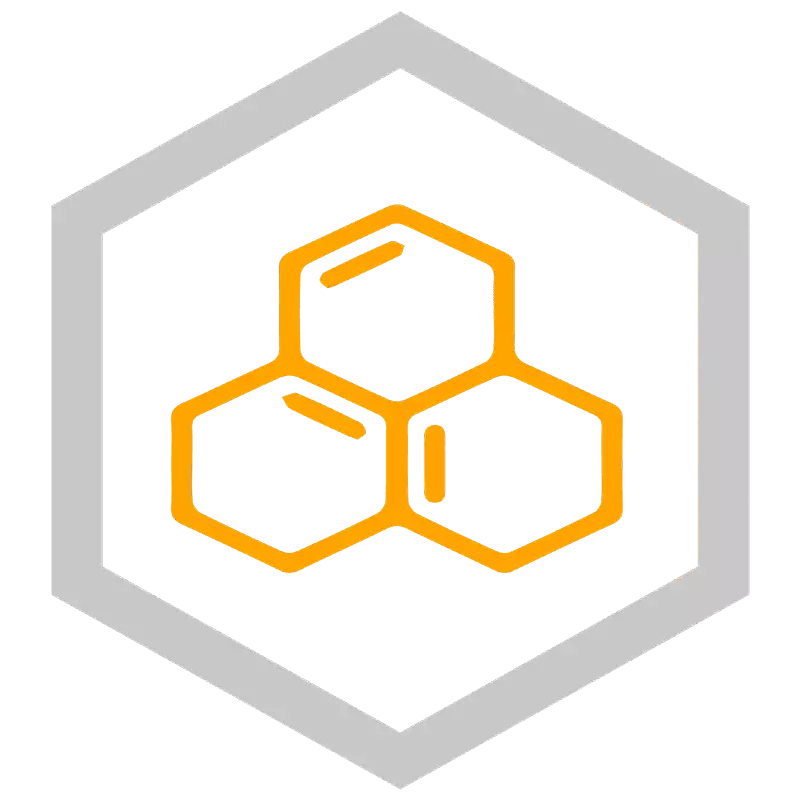
Morphomer® Tau aggregation inhibitors are first-in-class small molecules designed to cross cell membranes and inhibit intracellular Tau aggregates. They also promote disaggregation of already formed aggregates which enhances their therapeutic potential in advanced stages of disease.
- Modality: Small Molecule
- Therapeutic Area: CNS
-
Phase:
1
-
Partner:
Eli Lilly and Company
PI‑2620
Tau-PET4 tracer
Alzheimer's disease
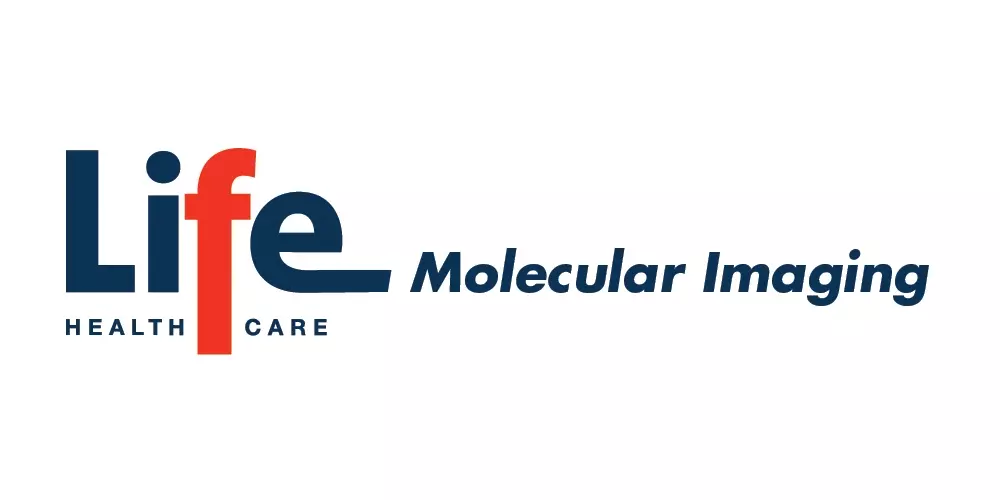
PSP5 diagnostic


The Tau-PET tracer PI-2620 was designed to specifically bind pathological forms of human Tau in Alzheimer’s disease and other Tauopathies. It crosses the blood brain barrier and has high selectivity, even during early disease stages. A major differentiator is its ability to bind to 4-repeat (4R) Tau isoforms extending its use to diseases driven by these Tau species.
- Modality: Diagnostic
- Therapeutic Area: CNS
-
Phase:
1 and 2
-
Partner:
Life Molecular Imaging
alpha-synuclein
ACI‑7104.056
anti-a-syn active immunotherapy
Parkinson's disease, alpha-synucleinopathies
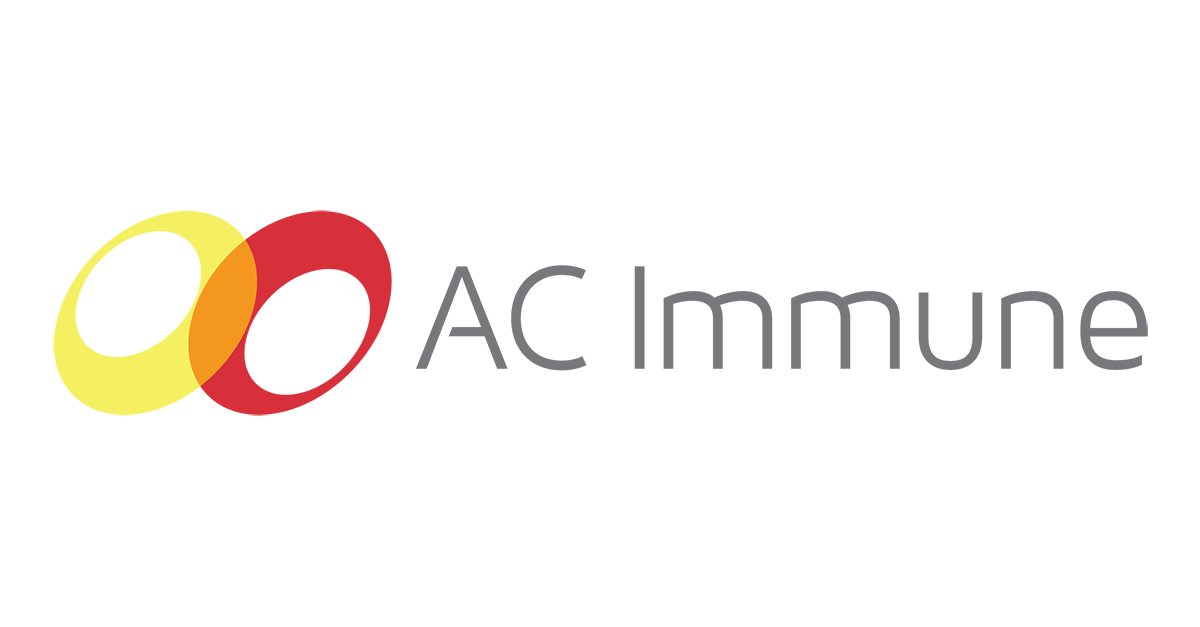

ACI-7104.056 is an optimized formulation of its clinically validated anti-a-syn predecessor active immunotherapy. It generates a target-specific antibody response against pathological oligomeric a-syn to inhibit spreading and downstream neurodegeneration in early Parkinson’s disease. It produces a strong and boostable antibody response with evidence of target engagement and a signal of clinical efficacy.
- Modality: Active immunotherapy
- Therapeutic Area: CNS
-
Phase:
2
- Partner: ACIU wholly owned
ACI-12589
a-syn-PET4 tracer
Multiple system atrophy, alpha-synucleinopathies


Derived from our Morphomer® platform, ACI-12589 is the first-in-class tracer detecting pathologic a-synuclein in patients that differentiates MSA cases from other synucleinopathies and neurodegenerative diseases. This tracer binds specifically and selectively to a-synuclein inclusions in different human synucleinopathy cases. ACI-12589 will significantly improve the diagnosis of MSA and enable our precision medicine approach and biomarker-based development in MSA.
- Modality: Diagnostic
- Therapeutic Area: CNS
-
Phase:
1
- Partner: ACIU wholly owned
ACI-15916
a-syn-PET4 tracer
Parkinson's disease, alpha-synucleinopathies


Compared to ACI-12589, the newly identified ligand ACI-15916 shows significantly improved target occupancy on pathological a-syn aggregates in brain sections from different a-synucleinopathy cases. Besides, ACI-15916 displays excellent selectivity versus co-pathologies such as Abeta and Tau. ACI-15916 has the potential to detect a-syn in Parkinson's disease, as it detects very small aggregates and offers a suitable pharmacokinetic profile in preclinical models.
- Modality: Diagnostic
- Therapeutic Area: CNS
-
Phase:
1
- Partner: ACIU wholly owned
-
(1) Down syndrome-related AD; (2) Prevention trial API-ADAD in Colombia; (3) Open label extension study is ongoing; (4) Positron emission tomography; (5) Progressive supranuclear palsy
- Biologic
- Small Molecule
- Diagnostic
NOVEL TARGETS PIPELINE
TARGET
PRODUCT
CANDIDATE
CANDIDATE
INDICATION
Discovery
Preclinical
Phase 1
Phase 2
alpha-synuclein
Anti‑a‑syn antibody
Parkinson's disease, NeuroOrphan

The a-syn antibodies generated using our SupraAntigen® platform have unique binding properties and preferentially target pathological forms of a-syn. Designed to interfere with a-syn aggregation and spreading, they significantly decrease pathological a-syn spreading in vivo.
- Modality: Monoclonal antibody
- Therapeutic Area: CNS
- Partner: ACIU wholly owned
Morphomer® a‑syn aggregation inhibitor
Parkinson's disease, alpha-synucleinopathies

We identified and characterized biologically active small molecule aggregation inhibitors targeting intracellular a-syn aggregates. These significantly decrease a-syn accumulation inside neurons and have favorable CNS-penetrant pharmacokinetic properties.
- Modality: Small Molecule
- Therapeutic Area: CNS
- Partner: ACIU wholly owned
TDP-43
Anti‑TDP‑432 antibody
LATE3, NeuroOrphan

TDP-43 is a recently identified target protein in frontotemporal dementia (FTD), amyotrophic lateral sclerosis (ALS) and LATE, but also an important co-pathology in Alzheimer’s disease.
Antibodies binding to TDP-43 were generated by our SupraAntigen® platform and pan-TDP-43 antibodies were selected for their high binding affinity for TDP-43 and efficacy in mitigating its aggregation in vitro and in vivo.
- Modality: Monoclonal antibody
- Therapeutic Area: CNS
- Partner: ACIU wholly owned
TDP‑43‑PET tracer
TDP-43-opathies

Using our Morphomer® platform, we designed potential first-in-class PET tracers binding to pathological TDP-43 protein. They demonstrated favorable pharmacokinetic profiles and nanomolar binding affinities on TDP-43 aggregates.
- Modality: Diagnostic
- Therapeutic Area: CNS
- Partner: ACIU wholly owned
Inflammasome
Anti‑NLRP34‑ASC5 antibody
CNS, NeuroOrphan

Activation of the NLRP3 inflammasome pathway exacerbates neuronal damage and promotes neurodegeneration. We generated neutralizing anti-ASC antibodies with our SupraAntigen® platform. These bind extracellular ASC and potently inhibit formation of ASC specks to prevent inflammation.
- Modality: Monoclonal antibody
- Therapeutic Area: CNS, NeuroOrphan
- Partner: ACIU wholly owned
Morphomer® NLRP3‑ASC
Non-CNS

We have successfully identified various chemical series of potent small molecule NLRP3 inhibitors to modulate pathological inflammatory responses in non-CNS indications that are exacerbated by aberrant activation of the NLRP3 pathway.
- Modality: Small Molecule
- Therapeutic Area: Non-CNS
- Partner: ACIU wholly owned
Morphomer® NLRP3‑ASC
CNS, NeuroOrphan

We have successfully identified various chemical series of potent small molecule NLRP3 inhibitors. They target the intracellular NLRP3 complex in microglia to inhibit the production of pro-inflammatory factors.
- Modality: Small Molecule
- Therapeutic Area: CNS, NeuroOrphan
- Partner: ACIU wholly owned
-
(1) Parkinson's disease; (2) TAR DNA-binding protein 43; (3) Limbic-predominant age-related TDP-43 encephalopathy; (4) (NOD)-like receptor protein 3; (5) Apoptosis-associated speck-like protein containing a CARD, also PYCARD
- Biologic
- Small Molecule
- Diagnostic
